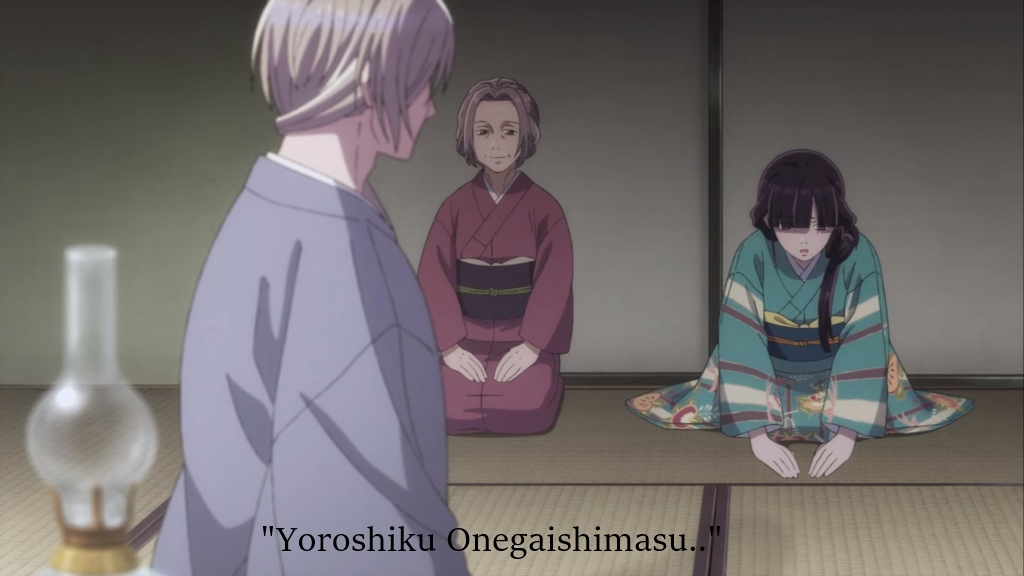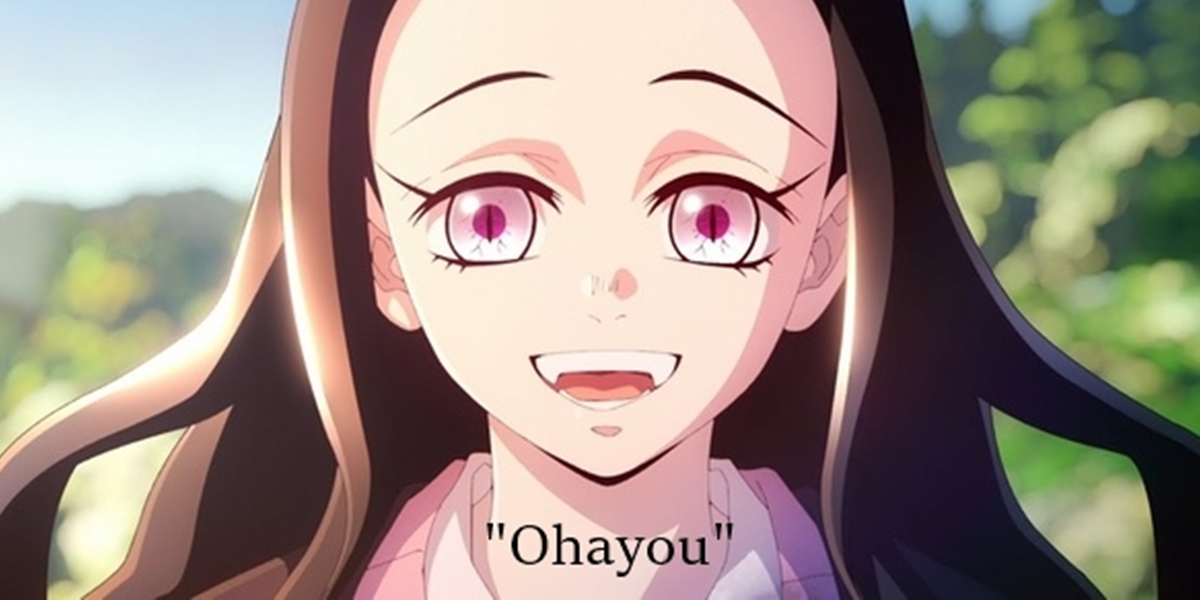Kapanlagi.com - A Japanese greeting is the foundation of social etiquette and culture in Japanese society. In everyday life, these greetings are not only used to say hello, but also reflect values such as respect, politeness, and consideration for others.
In this article, Kapanlagi will provide various examples of Japanese greetings commonly used in everyday life. By understanding their meanings and usage, you can better understand daily communication in Japan as well as the culture and etiquette that exist.
Therefore, here is a list of Japanese greetings commonly used by the Japanese people, complete with explanations. Let's check it out, KLovers.
1. Understanding Greetings in Japanese

Anime My Happy Marriage (credit: imdb.com)
Greetings in Japanese refer to various expressions or polite words used to greet, express gratitude, congratulate, or communicate with others in a polite manner according to Japanese culture. These greetings reflect social etiquette and important cultural norms in human relationships in Japan.
Furthermore, greetings in Japanese are not just words, but also reflect important cultural norms in daily social interactions. This shows the importance of using appropriate language and respect for traditions in interpersonal communication in Japan. The importance of greetings in Japanese includes several aspects:
1. Expression of Respect and Politeness
Greetings in Japanese reflect important norms of politeness in Japanese culture. Using the appropriate greetings shows appreciation and respect towards others, especially towards older or higher-status individuals.
2. Building Relationships
Greetings in Japanese are an important way to build and maintain social relationships in Japan. Applying appropriate greetings can help strengthen the bond between individuals and create a comfortable atmosphere in daily interactions.
3. Showing Social Etiquette
Using the correct greetings is also part of the respected social etiquette in Japan. The presence and use of polite greetings are considered a sign of maturity and appreciation for tradition.
4. Reflecting Culture and Identity
Greetings in Japanese reflect deep cultural values, such as respect, politeness, humility, and concern for others. By using appropriate greetings, one not only communicates verbally but also conveys unique cultural aspects of Japanese society.
2. List of Greetings in Japanese

Anime Naruto Shippuden (credit: imdb.com)
In Japanese, there are several ways to greet or say hello, depending on the situation and level of formality, as well as the context and familiarity between speakers. Here are some common greetings in Japanese:
1. Konnichiwa = Common greeting for "hello" or "good afternoon" and usually used in everyday situations.
2. Konbanwa = Greeting for "good evening" used during the evening.
3. Ohayou gozaimasu = Greeting for "good morning" used in the morning.
4. Sayounara = Greeting for "goodbye" used when parting for a long time.
5. Arigatou gozaimasu = This is a form of greeting "Thank you," but not a direct greeting, rather a common expression of gratitude.
6. Gokigenyou = A more formal greeting, meaning "welcome" often used in shops or restaurants.
7.Irasshaimase = This is also a formal greeting, meaning "welcome" usually used in shops or restaurants when customers enter.
8.Ogenki desu ka = Greeting for "how are you?" or literally "are you healthy?" that is commonly used.
9.Otsukaresama desu = Greeting expressing appreciation for someone's hard work, usually used in the workplace or after tiring activities.
10.Itadakimasu = Thank you expression before starting to eat, showing gratitude for the food to be enjoyed.
11.Gochisousama deshita = Thank you expression after eating, showing appreciation for the food that has been served or eaten together.
12.Oyasuminasai = Greeting for "good night" commonly used before sleeping or when parting towards the night.
13. Ittekimasu = Used when leaving, meaning "I will leave and come back later". And this sentence is commonly used by Japanese people when leaving home.
14.Itterasshai = This greeting is a response to "Ittekimasu". Itterasshai itself means "go and come back safely" and is also commonly used.
15.Okaerinasai = Greeting given to someone who has just returned, meaning "welcome back" and this is commonly used.
16.Otsukaresama = This greeting is a shorter version of "Otsukaresama desu", used to express gratitude for someone's hard work, especially in the workplace.
17.Mata ne = Informal expression meaning "see you again". And this greeting is used when parting with friends or family.
18.Yoroshiku onegaishimasu = Greeting expression used when asking for cooperation or requesting assistance, meaning "I rely on you" or "please help me".
19.Doumo arigatou = This is a more casual version of "Arigatou gozaimasu", meaning "thank you very much" or "thank you so much". And this greeting is used for direct expressions, unlike "Arigatou gozaimasu".
Those are the greetings in Japanese that KLovers can know. With these greetings, KLovers can not only communicate well, but also understand the culture and etiquette in Japanese culture.
(kpl/dhm)
Disclaimer: This translation from Bahasa Indonesia to English has been generated by Artificial Intelligence.














